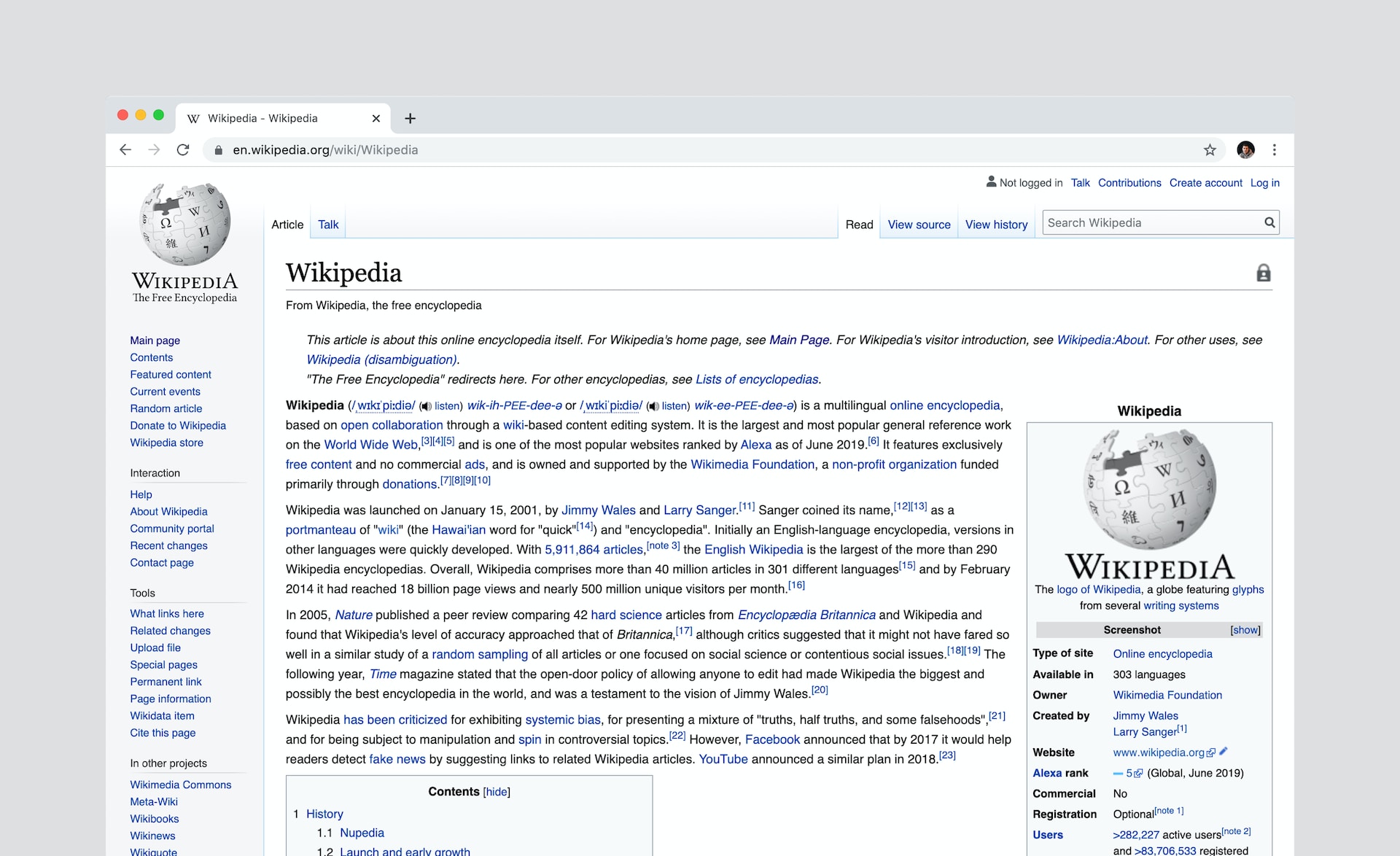You’ve managed to achieve some renown in your field. Maybe you’re not a household name, but people seem to know who you are. Some, at least. Enough of them.
So you’re eagerly eyeing one of the bigger prizes available to prominent individuals. Your very own Wikipedia entry.
There’s just one problem: You don’t have one, and no one’s stepping up to write one for you.
This is a problem because everyone who’s anyone has a Wikipedia entry these days, from finance pioneers like Steve Streit to tech moguls like Mark Zuckerberg. You’re not quite as well-known as those guys, but there are plenty of Wikipedia entries about notable or influential people you’ve never heard of.
You’re starting to think you should just write your own Wikipedia entry and be done with it. What’s the worst that could happen?
Why You Shouldn’t Write Your Own Wikipedia Entry
Wikipedia doesn’t outright forbid people to write their own entries, but the site strongly frowns upon it. Creating your own Wikipedia page can backfire in other ways as well.
1. Wikipedia Has Strict “Notability” Standards
The biggest issue with creating your own Wikipedia page is the fact that Wikipedia has high standards for “notability.” These standards exist to ensure only reasonably well-known subjects remain on Wikipedia. Editors relentlessly scan for and flag pages that don’t meet them.
2. You Could Hurt Your Chances of Getting a “Legitimate” Wikipedia Page in the Future
When it comes to self-promotion, Wikipedia follows the one-strike rule. If your page or your editing activities violate Wikipedia’s rules, expect your page to get flagged (and eventually taken down) and to have difficulty creating a new one.
3. You Have Limited Control Over Your Page’s Content
Anyone can be a Wikipedia editor. That’s good for you, a person interested in creating your own Wikipedia page. And also bad because, well, anyone can edit your page after it’s created. And rest assured, they will, especially if they’re not sure you belong.
4. Experienced Users Will See Through It
Experienced Wikipedians can spot a pretender when they see one. Even if they don’t flag it, they might discount it, indirectly hurting your credibility.
Not “Notable” Enough for Wikipedia? Focus Here Instead
If your only shot at having a Wikipedia page is (for now) creating one yourself, focus on these alternatives first.
1. Building Out Your “Exact Match Domain”
Exact match domains aren’t as helpful for generic keyword ranking as they used to be, but they’re still very useful for attracting users searching for your given name. So if you haven’t already, secure “yourname.com” (or the closest possible variation if it’s already taken) and focus on turning it into a high-quality site with:
- An “about me” page
- Your CV (or relevant highlights)
- A blog with content related to your area of expertise
2. Developing an Engaging YouTube Presence
You don’t have to love being on camera to have an engaging YouTube presence. In fact, with increasingly sophisticated and nontechnical animation and narration tools at your disposal, you don’t have to be on camera at all.
Again, your area of expertise is the name of the game. Create short, approachable videos that people interested in your field might find useful. If you have the bandwidth, create “Beginner,” “Intermediate,” and “Expert” tracks to attract people at different stages of discovery.
3. Using Direct Wikipedia Alternatives Like WikiAlpha
Finally, add a page about yourself to lesser-known alternatives like Everybodywiki and WikiAlpha, which don’t have the same notability standards or conflict-of-interest rules.
If your first thought upon discovering these Wikipedia alternatives is “Boy, those look a lot like Wikipedia itself,” you’re correct. That’s the point.
Wikipedia has several competitors (though they wouldn’t call themselves that) built on basic “wiki” architecture. The wiki format is immediately recognizable to regular Wikipedia users, which makes them more comfortable with unfamiliar alternatives than they might otherwise be. This means they’re more likely to link to and share your entry’s content.
You Can Get By Without Wikipedia (For Now)
Having your very own Wikipedia entry is a point of pride. It’s also (probably) not going to change your life or turbocharge your career. You can live without it.
You might get to a point in your career where you’re clearly ready for a Wikipedia page, or you might not. With so many wiki-based alternatives, not to mention other strategies to raise your profile online, you’ll be fine either way.
































































